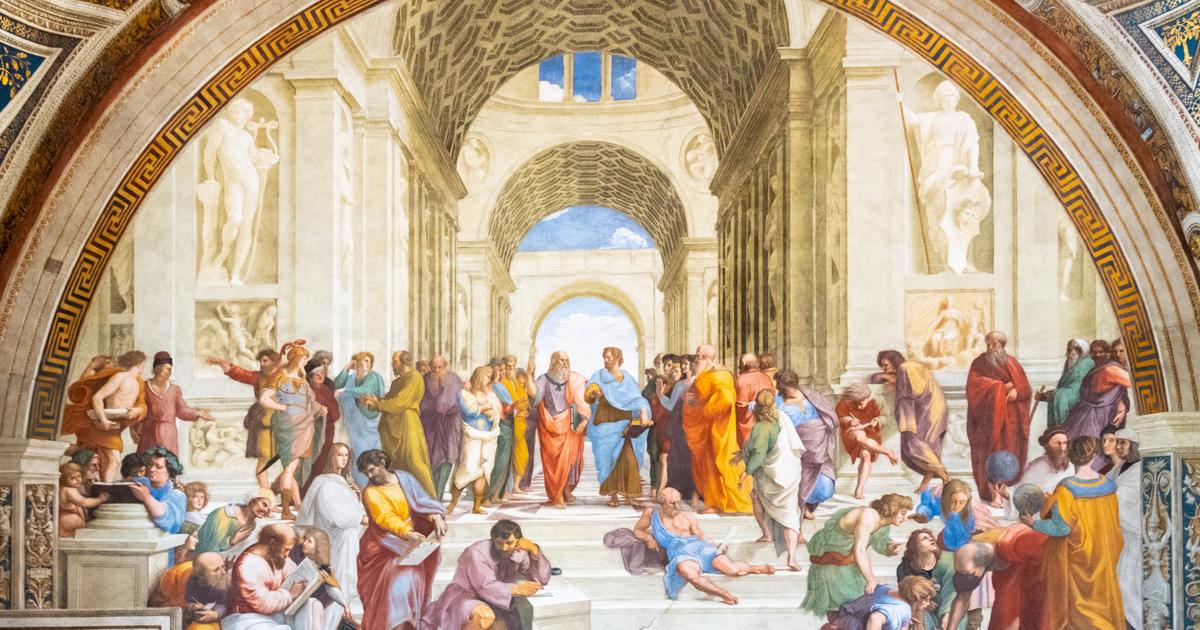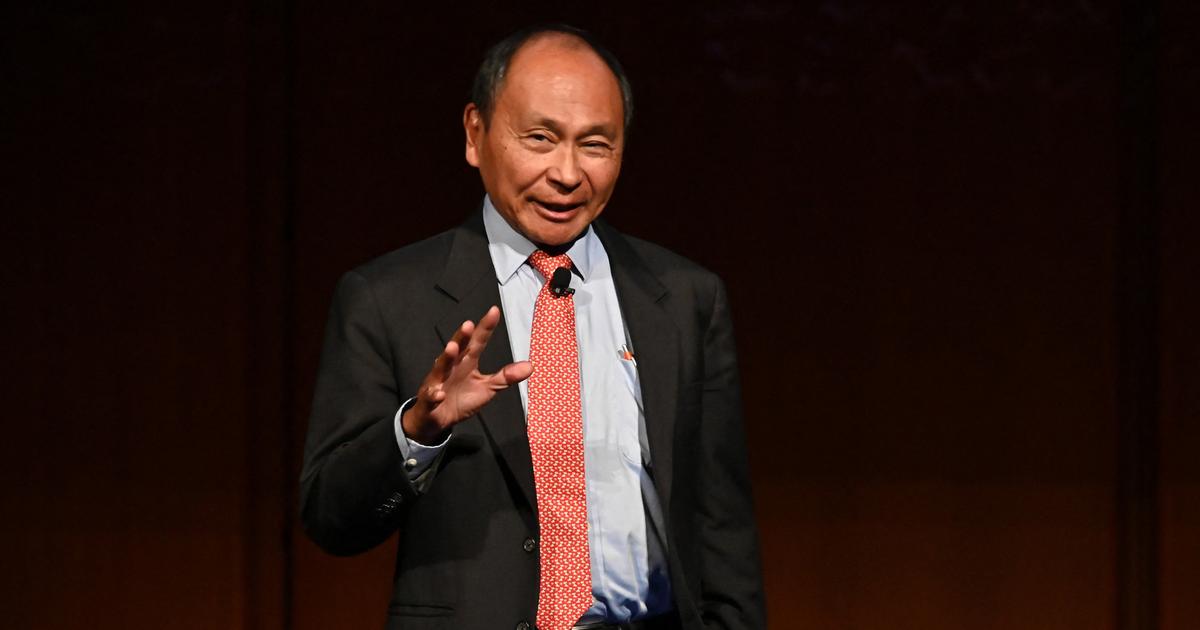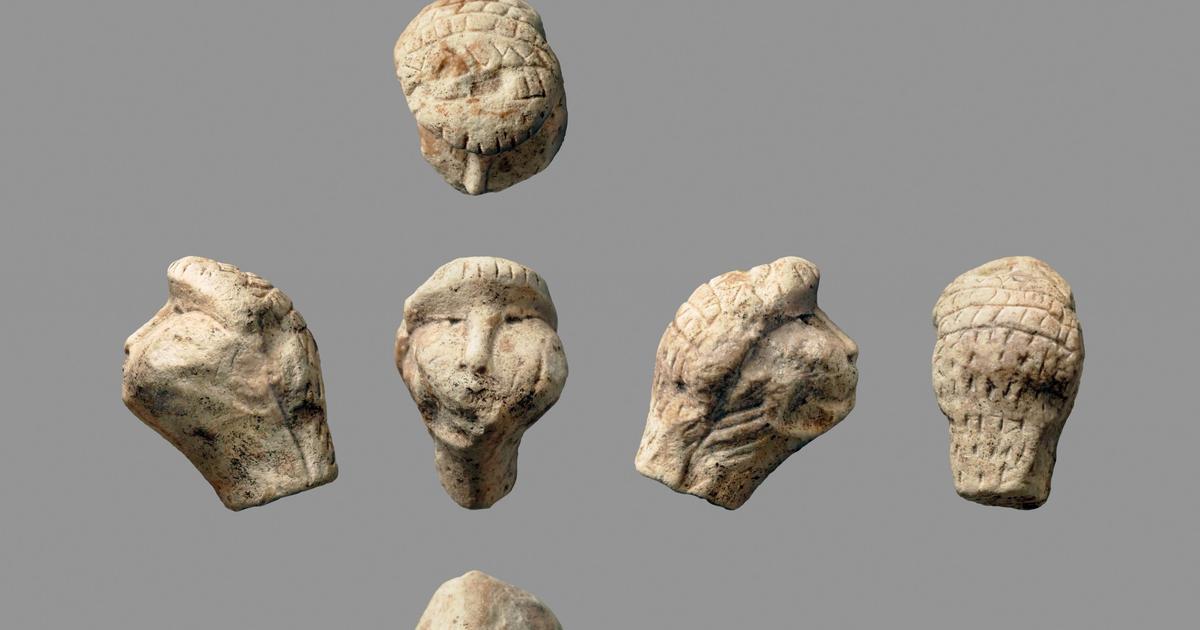Former adviser to Prime Minister Dominique de Villepin, Frédéric Saint Clair is a writer and political scientist. He publishes “How to get out of the liberal impasse? Essay on civilizational political philosophy” published by Harmattan.
FIGAROVOX. - You publish “How to get out of the liberal impasse? », published by L'Harmattan. In your opinion, is this the end of the “end of the story”?
Frederic SAINT-CLAIR. -
The concept of the "end of history" is a legacy of German philosophy which experienced a resurgence of interest in the early 1990s, during the collapse of the Soviet regime, thanks to the publication of the now famous book by Francis Fukuyama who announced such an end to History, that is to say the fact of having reached an unsurpassable political and economic model: liberal democracy.
Except that the clash of civilizations, theorized at the same time by Samuel Huntington and inscribed in the facts since, has come to shake up the certainties of Westerners, as has the resurgence of illiberal political models, such as that of Viktor Orbán at the heart of the Europe, which seems to resist the violence of civilizational shocks better than ours, and above all
incredible rise of authoritarian capitalist models, as in China, which is the real winner of globalization.
Thirty years later, the West is downgraded, the American hyperpower is only a distant memory, Europe is on the verge of disintegration, whatever its thurifers say, and the France of the metropolises looks like mistaking it for a third world country.
So, to answer your question, no, it's not the end of history, no, the liberal model is not an unsurpassable must.
But to say that is to say nothing, because everyone had realized it.
The question that occupied me in this book was: once this acknowledgment of failure has been made, what do we do?
West is downgraded, the American hyperpower is only a distant memory, Europe is on the verge of disintegration, whatever its flatterers say, and the France of the metropolises resembles to be mistaken a country of the Third World.
So, to answer your question, no, it's not the end of history, no, the liberal model is not an unsurpassable must.
But to say that is to say nothing, because everyone had realized it.
The question that occupied me in this book was: once this acknowledgment of failure has been made, what do we do?
West is downgraded, the American hyperpower is only a distant memory, Europe is on the verge of disintegration, whatever its flatterers say, and the France of the metropolises resembles to be mistaken a country of the Third World.
So, to answer your question, no, it's not the end of history, no, the liberal model is not an unsurpassable must.
But to say that is to say nothing, because everyone had realized it.
The question that occupied me in this book was: once this acknowledgment of failure has been made, what do we do?
to answer your question, no, it's not the end of history, no, the liberal model is not an unsurpassable must.
But to say that is to say nothing, because everyone had realized it.
The question that occupied me in this book was: once this acknowledgment of failure has been made, what do we do?
to answer your question, no, it's not the end of history, no, the liberal model is not an unsurpassable must.
But to say that is to say nothing, because everyone had realized it.
The question that occupied me in this book was: once this acknowledgment of failure has been made, what do we do?
Read alsoFrancis Fukuyama: “A long fight begins with China, but we are not necessarily going to lose it”
The answer consisted, initially, in carrying out a re-reading of the work of Francis Fukuyama, “The end of History and the last Man”.
Why ?
Mainly because if it was criticized a lot, it was mostly badly read!
Let's face it: Fukuyama is absolutely brilliant, and he himself indicated that there was a problem with his model.
His critics pass him off as a standard neoliberal, follower of American capitalism, but Fukuyama is a continuation of German philosophy, Kant, Hegel and Nietzsche;
and he is a disciple of Kojève, who rereads Hegel through the dialectic of Master and Slave.
What does that mean?
First of all, that Fukuyama has nothing to do with an idealistic neolib' like the "Mozart of finance",
the
end of History
”
,
but in “
the last Man
”… However, everyone missed it!
Let us ask ourselves: what does this “
last Man
” look like?
Fukuyama responds bluntly: to an uprooted, sated bourgeois, stuffed with wealth, who renounces war in favor of a life of consumption.
In other words, he looks like a “well-fed dog”.
There it is, the anthropological ideal of the liberals.
And there, everyone will easily understand that we have a serious problem!
Francis Fukuyama described in
“
The End of History and the Last Man
”
the anthropological contradiction of liberalism: “[Human beings] will want to be citizens rather than bourgeois, finding the life of a slave without a master – the life of rational consumer – ultimately boring.
They will want to have ideals for which to live and die, even if the most important ones have been achieved
hic
et
nunc
, and they will also want to risk their lives, even if the international system of states has succeeded in abolishing all possibility of war”.
Has this contradiction been and can it be resolved?
You put your finger on the serious problem, which Hegel, and after him Marx, call “contradiction”.
This is of an anthropological nature, that is to say, it concerns the essence of man.
Francis Fukuyama was obviously aware, when he wrote his book, that the liberal model he defended was not free of contradictions, because the “last man” as he envisaged it could not exist.
What individual wants to look like the tartuffe bourgeois illustrated by Daumier, navel-gazers concerned only with satisfying their material well-being?
Homo
-oeconomicus
will be prevented from yielding to the mediocrity of the liberal ideal by his vanity, or, to put it more philosophically, by his "desire for recognition," or, to put it even more philosophically, in Platonic fashion: by his
thymos
, and more particularly by his
megalothymia
, his will to power.
Let us ask ourselves this question: why did Western societies, at the turn of the Industrial Revolution, gradually renounce the aristocratic model of war in favor of the bourgeois model of exchange?
It took more than a century, and there were back and forths (and there still are), but the historical dynamic is indeed that.
Why production and exchange rather than war and conquest?
Benjamin Constant responds as follows: "
War and trade are only two different means of achieving the same goal: that of possessing what one desires.
".
To put it another way: Wealth is also a synonym of power.
Enrichment is another way for an individual (as for a State) to satisfy his will to power, to establish his desire for recognition, to satisfy his
thymos
, to distinguish himself from other individuals (or to dominate other States ).
The challenge is not to become illiberals, but post-liberals, that is to say to take the necessary distance to develop a model that allows the ideal of freedom to be inserted into a more majestic setting than the fake one delivered to us by the Anglo-Saxon Enlightenment
Frederic Saint-Clair
Fukuyama, following Alexandre Kojève, believed that liberalism, political and economic, would make it possible to control, even to annihilate, the will to power of individuals as well as that of States, and to obtain an entirely pacified society.
The 21st century has brought them a scathing denial, consecrating Machiavelli's victory over John Locke.
The only way to master the will to power is to oppose it with another will to power: thymos against thymos.
Liberalism has made it possible to modify the forms of rivalry, between individuals as well as between States, not to put an end to this rivalry.
The challenge therefore consists in continuing to develop the forms of megalothymic rivalry in order to free ourselves from the contradictions specific to liberalism,
its inability to keep its promises in economic and social matters, and its propensity to destroy the beauty of the world, to burn nature and to ruin civilizations.
In other words, to put an end to liberalism...
Read alsoJacques de Saint Victor: “At the sources of authoritarian liberalism”
Aren't you afraid, by putting an end to liberalism, to put an end to freedom?
The concept of freedom existed long before the appearance of liberalism.
He will easily survive his disappearance.
Especially since the challenge is not to become illiberals, but post-liberals, that is to say to take the necessary distance to develop a model that allows the ideal of freedom to be inserted into a a more majestic setting than the fake one delivered to us by the Anglo-Saxon Enlightenment: the indefinite increase in the rights and wealth of individuals.
The question is: how to do it?
Some plan to return to a concept of freedom closer to that which the Ancients had, in Greek Antiquity in particular.
I prefer to think that we are Modern and that we will remain so!
The great stroke of political genius of the Moderns lies in the creation of this incredible space of freedom that is “civil society”.
We must rethink its political forms in order to protect it and restore its integrity and its Western and national specificity.
Note that it is not the state, but civil society that is targeted, as much by civilizational Islam as by American or Chinese capitalism;
and liberalism facilitates their progressive hold through the indefinite and blind extension of these so-called “fundamental” freedoms.
Remember that before the proliferation of hijabs and halal, France experienced the proliferation of jeans, basketball and hamburgers.
Has liberalism, including in its socialized form, been an effective bulwark against these
soft powers?
aggressive civilizations?
Absolutely not !
Our civil society, our place of living together, our mores, our traditions, our environment, were Americanized yesterday, they are Islamized today, and they will undoubtedly be Sinicized tomorrow.
Politicians, whoever they may be, use words when they talk about protecting our civilization.
The truth is that their political models of reference are all, more or less, attached to a form of social-liberalism, of a total impotence because entirely blind to the civilizational fact.
Faced with the two blocks of China and the United States, how can France still exist as a civilizational model?
In truth, developing a civilizational political model worthy of the name – that is to say, which is something other than a caricature of political authoritarianism allied to a disguised economic liberalism – is the only way to exist in the face of the China and the United States.
Who can seriously believe that the globalized liberal model will allow us to restore France's power and compete with China or the USA?
Who can believe that a dose of economic protectionism will allow us to save our economy, revitalize our territories, restore our heritage?
It is a real intellectual and political revolution that is expected if we want to avoid being fossilized.
Read alsoViktor Orban: from the hero of the Hungarian democratic spring to the champion of illiberalism
We have progressed, however, it should be noted, because we now collectively pose - except for the radical left - the recognition of the threat that weighs on our civilizational heritage.
The fact of having renounced the term “national identity” in favor of the term “civilization” is a first victory which reflects a healthy cultural awareness.
But this is insufficient.
Because we still submit, without admitting it, to the eternal liberal economic and political model.
Basically, we publicly mock the "
end of history "
of Fukuyama, we openly laugh at the supposed victory of the liberal democracies, but internally, we fully subscribe to it, and our intellectual, political, and even electoral reflexes bear witness to it.
We behave as if liberalism had really won.
We have remained intellectually stuck in the 20th century, prisoners of concepts such as: democracy, growth, reduction of inequalities, protection of individual freedoms, secularism, innovation, technological challenges, debt reduction... None of this will allow us to resist in the face of to the giants of tomorrow, because these concepts come under the same and unique paradigm: liberalism.
However, this one is at an impasse.
He didn't win!
Should it be repeated?
Read Kishore Mahbubani!
Tomorrow, China will win.
Returning to beauty the place it is
politically
due will have an immediate consequence: bringing down liberal
homo-oeconomicus
from its pedestal, and raising
homo-æstheticus
in its place .
Frederic Saint-Clair
The only solution is to change the paradigm.
The civilizational paradigm is not just an intellectual quirk, it is a means of giving back to the West its influx.
This presupposes transforming our conception of power.
To put it quickly: neutralize the ferments of conquest as well as those of competition.
To achieve this, we must dive into the heart of liberalism, and mainly economic liberalism, to exhume what could allow us to go beyond it, the famous unresolved contradiction, the weakness of the “last man”.
Kojève offers us the solution.
He, in fact, abandoned his ideal of the last liberal man during a trip to Japan in 1958, when he discovered the wonders of Japanese civilization and its ideal of beauty, through the Noh theater,
You call for an aestheticization of the world… Can beauty save our civilisation?
Only she can do it, as surprising as this answer may seem.
Beauty is, in its political dimension, the great unthought of our time.
Even Simone Weil, when she recites the long list of the needs of the soul: order, freedom, obedience, responsibility, etc., does not say a word about it.
Could it be that the soul can dispense with beauty?
Of course not, but considering it in its political form is a challenge – except to anchor it in a civilizational conception of politics.
Read also“All her life, Simone Weil refuses all doctrine: she is only on the side of the truth”
Beauty occupies in the civilizational paradigm the place of morality in the liberal paradigm.
Because, in fact, from Jean-Claude Michéa, follower of Orwellian c
ommon decency
, to Amartya Sen, Nobel Prize winner in economics, the moralization of the economy seems to be the only answer to our liberal malaise.
The
problem
?
Morality is powerless to support the expectations of the
thymos
, it is unable to tame the
megalothymia
visible in the process of indefinite accumulation of capital.
Beauty can achieve it, however.
Why ?
Because it is at the heart of the mechanics of acquiring wealth, at the heart of the capitalist mechanics.
You have to read the work of Lipovetsky and Serroy, "The aestheticization of the world", which describe this very well - without however drawing the consequences that one might expect, in an astonishing way... To put it in a colorful way: this it is not the virtues of the aristocrats that once amazed the people, but the splendor of their clothes and their palaces.
It is also the beauty of our heritage, natural and cultural, which attracts millions of tourists every year.
Because beauty is, like wealth, synonymous with power.
In everything we buy, we aim for beauty: our clothes, our furniture, our cars, even
to the brush that is used to clean our toilets.
Everything passes through the hands of designers, without whom nothing is marketable today.
Read alsoAlexandre Devecchio: “Michéa and Onfray, populist thinkers”
Returning to beauty the place it is politically due will have an immediate consequence: bringing down liberal
homo-oeconomicus
from its pedestal, and raising
homo-æstheticus
in its place .
Note that this
homo-æstheticus
is not the creation of an intellectual.
It existed very widely in Europe, in what was the cradle of Modernity: Renaissance Italy.
At the time, he took on the face of the educated humanist, before donning the garb of the aristocrat during the French Grand Siècle, initiator of the "
paradigm of manners
dear to Montesquieu, in salons where the role of women was central, as femininity and civilization are inseparable.
Nowhere is he better described than in Baldassar Castiglione's '
Il Cortegiano
', which far surpassed the contemporary urban bourgeois in… his grace.
Of this grace which came to men, it is said, through Christ, and which is not only synonymous with beauty - Alain Pons explaining to us that it is also "
the act by which we attract recognition
".
So here is the
thymos
again , from the Italian Renaissance, taken care of in a way that has nothing to envy to liberalism as humanism has been able to create the wonders of our civilization that liberalism never ceases to ruin.
“How to get out of the liberal impasse?
Essay on Civilizational Political Philosophy", Frédéric Saint Clair, 138 p., €51.5 L'Harmattan















